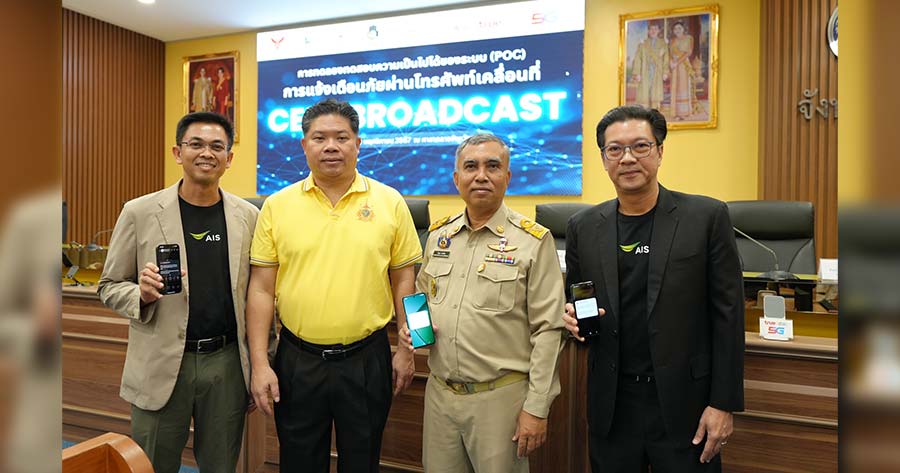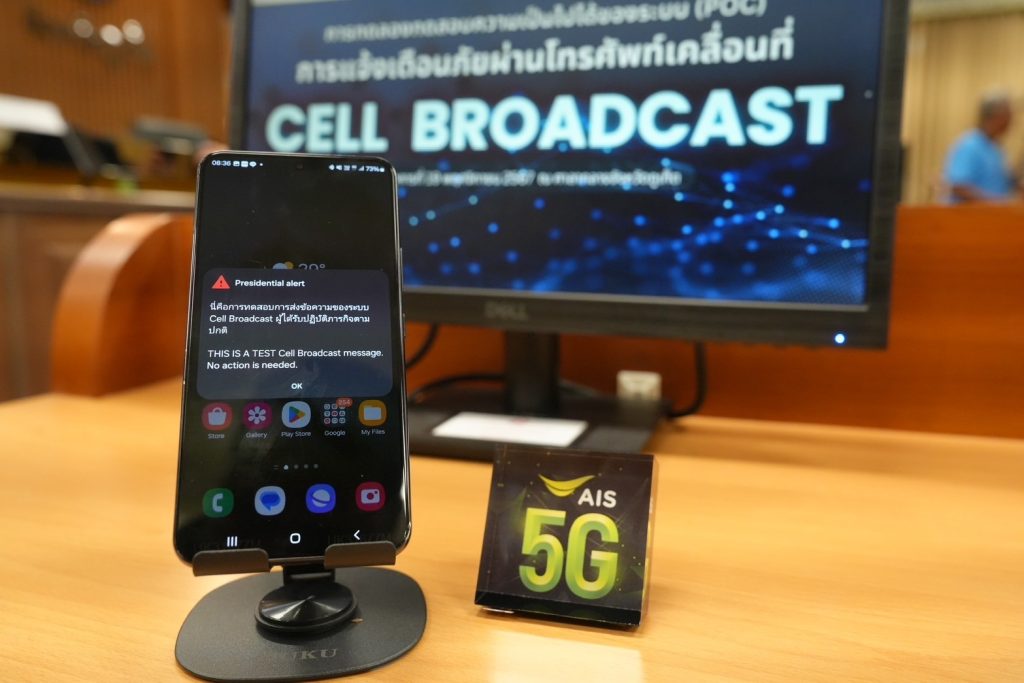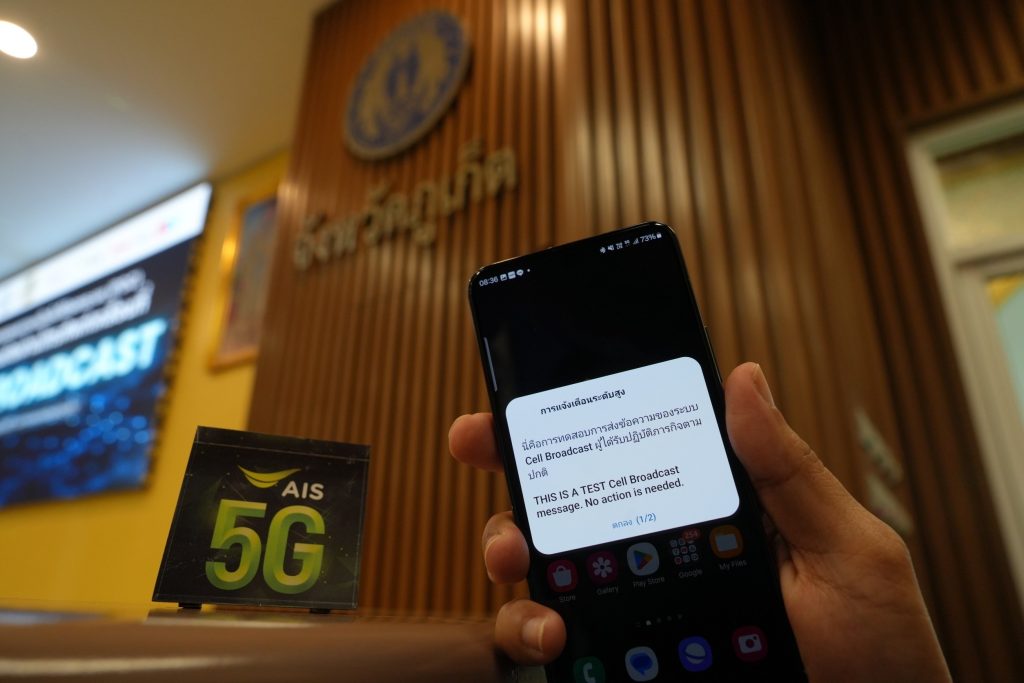Waroonthep Watcharaporn, Head of Business Relations at AIS, stated: “AIS has collaborated with the National Broadcasting and Telecommunications Commission (NBTC), the Ministry of Digital Economy and Society (DES), the Department of Disaster Prevention and Mitigation (DDPM), and other agencies to select the most suitable technology for the national emergency alert system, following international standards. This is the Cell Broadcast Service technology, which allows messages to be sent directly to mobile phones in specific areas. This technology is ideal for emergency alerts because it can simultaneously send messages to all 4G and newer devices within the coverage area of a specific base station. The messages appear on mobile screens as Pop-Up Notifications in near-real-time, enabling immediate awareness of situations.”
“After continuous development, we sincerely thank the NBTC Office for allocating funds from the Broadcasting and Telecommunications Research and Development Fund for Public Interest. This support enabled AIS and other operators to conduct Cell Broadcast technology trials in Phuket, achieving the set goals and preparing for full integration into the national alert system. The recent live network testing served as a proof-of-concept simulation for emergencies and natural disasters, designed to connect with the national command center. These trials were highly successful, building confidence in the safety and security of lives for citizens and tourists alike,” added Waroonthep.
Trairat Viriyasirikul Deputy Secretary General Acting Secretary General of the office of the NBTC, noted: “In the past, the NBTC Office has collaborated with the DES Ministry, the DDPM, and all telecom operators to develop an emergency alert system via mobile networks (Cell Broadcast). Responsibilities were distributed among agencies to ensure a functional Cell Broadcast system that benefits the public. By the second quarter of 2025, the Cell Broadcast system is expected to be operational in some parts of the country.”
Responsibilities are divided among the involved agencies as follows:
– DDPM: Determines the content and area for message dissemination, manages communication (Cell Broadcast Entity – CBE).
– DES Ministry: Oversees the cloud server system and connectivity between the CBE and the Cell Broadcast Center (CBC). Telecom operators are responsible for delivering the alert messages to mobile phones in affected areas.
– NBTC Office: Provides financial support to three mobile operators (AWN, TUC, and NT) through the the Broadcasting and Telecommunications Research and Development Fund for Public Interest.
The trials in Phuket were conducted to test the feasibility of the alert system in real-life scenarios, confirming the readiness of mobile operators in concrete terms.
Waroonthep concluded “At AIS, we are committed to not only ensuring readiness to connect with the national command center for public alerts but also continuously expanding our network coverage to reach all parts of the country. Currently, our network covers over 95% of the population. We aim to further expand into remote areas to ensure that the Cell Broadcast alert system provides equal and comprehensive safety to all citizens.”







